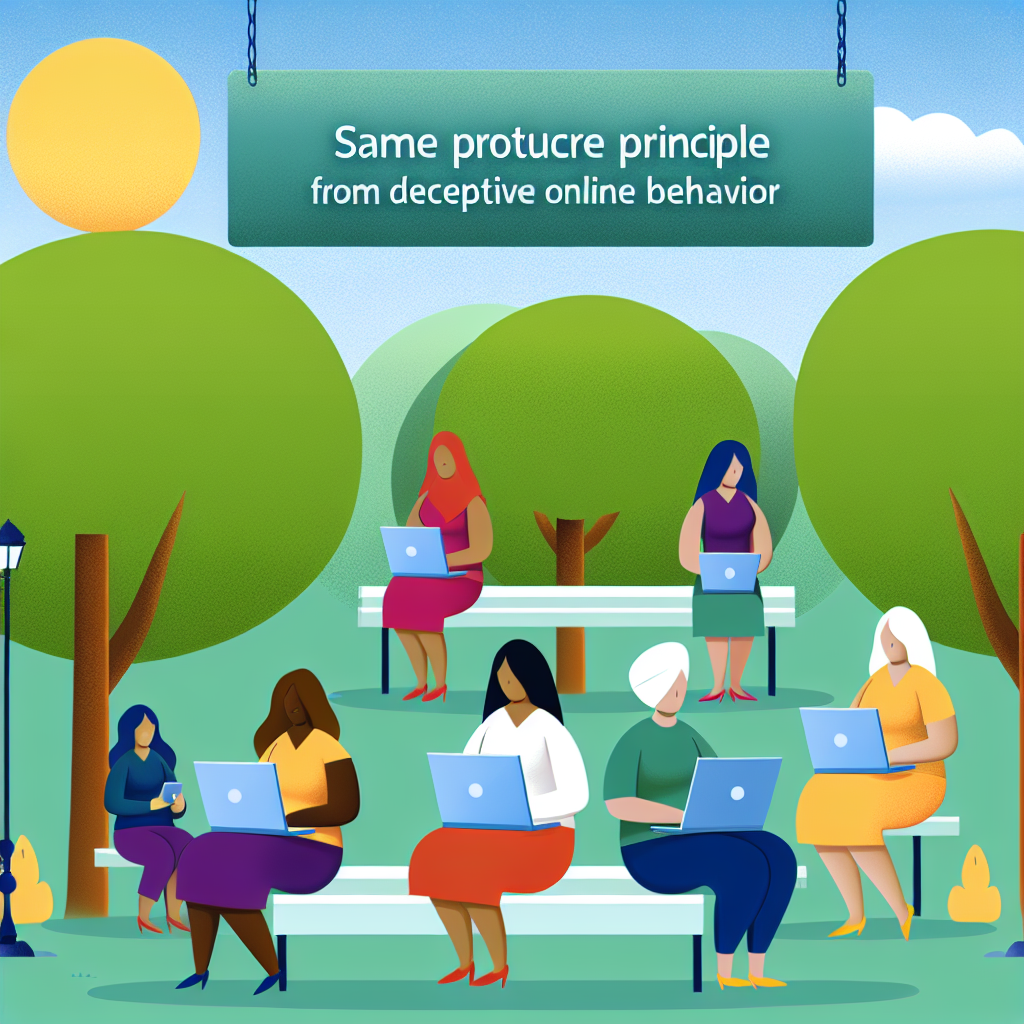# **Dating Scam Prevention: Latest Tactics**
Introduction: The Dark Side of Online Dating
Online dating has revolutionized the way people connect, offering singles the opportunity to find companionship, romance, and potentially lasting relationships. However, as digital dating grows in popularity, so does the risk of encountering scams.
Fraudsters have become increasingly sophisticated, using emotional manipulation, deepfake technology, and financial fraud to deceive victims. The Federal Trade Commission (FTC) reported a staggering $1.3 billion loss to romance scams in 2022 alone, with victims losing an average of $4,400 each ([FTC Report](https://www.ftc.gov/news-events/data-visualizations/data-spotlight/2023/02/report-romance-scams-topped-13-billion-losses-2022)).
With scammers taking advantage of AI technology and psychological manipulation, it has become more critical than ever to recognize the warning signs of fraudulent activity. In this post, we’ll explore the latest dating scam tactics, provide insights from professional studies, and offer essential tips to protect yourself.
Latest Tactics Used by Dating Scammers
1. AI-Generated Profiles & Deepfake Deception
Scammers are now using artificial intelligence to create hyper-realistic fake dating profiles. AI-generated profile images make traditional reverse-image searches ineffective, while deepfake technology can simulate live video calls, allowing fraudsters to impersonate real people convincingly.
2. Cryptocurrency Investment Scams (“Pig Butchering”)
Romance scams now frequently involve cryptocurrency fraud, known as “pig butchering.” Scammers gain victims’ trust before introducing them to fake crypto investment opportunities. Victims are encouraged to invest more and more, only to discover too late that their funds are unrecoverable.
3. Military & Overseas Professional Impersonation
A prevalent scam tactic involves criminals posing as deployed military personnel, doctors, or engineers working abroad. They build trust before making financial requests, often citing emergencies such as medical expenses, travel fees, or equipment costs.
4. Inheritance & Legal Battle Scams
Scammers lure victims into financially aiding fake legal battles, such as family inheritance disputes or frozen bank accounts. They claim to need funds for legal representation or court fees, tricking victims into fraudulent transfers.
5. Love Bombing & Emotional Manipulation
In this psychological scam tactic, fraudsters engage in “love bombing”—overwhelming their targets with excessive affection, flattery, and promises of a future together. Once the victim feels emotionally invested, the scammer introduces financial demands.
Professional Studies on Romance Scams
1. Psychological Vulnerabilities in Dating Scams
A study from *Social Psychological and Personality Science* found that people who believe strongly in soulmates and whirlwind romances are more likely to fall for scams. Idealistic romantic beliefs can override logical thinking, making victims ignore warning signs ([Social Psychological and Personality Science](https://journals.sagepub.com/home/psp)).
2. The Deep Financial and Emotional Toll on Victims
Research from the **University of Leicester** found that romance scam victims often suffer financial losses and psychological trauma, including PTSD, shame, and self-blame—preventing many from reporting the crime ([University of Leicester Research](https://le.ac.uk/news)).
3. The Gradual Trust-Building Strategy of Scammers
A forensic psychology study by the **University of Portsmouth** explored how scammers build trust gradually. Using a method called “gradual commitment fraud,” they start with small financial requests and slowly escalate their demands, making their victims feel too emotionally invested to walk away ([University of Portsmouth](https://www.port.ac.uk/news-events-and-blogs)).
How to Protect Yourself From Dating Scams
Avoid becoming a victim by following these essential dating scam prevention tips:
– Verify Online Profiles: Use reverse image search tools to confirm authenticity.
– Be Wary of Instant Love Declarations: If someone confesses love too quickly, it may be a scam.
– Never Send Money to Online Dates: Whether it’s cryptocurrency, wire transfers, or gift cards, do not send money to someone you’ve never met in person.
– Check for AI-Modified Content: Refusal to appear on live video calls or only sending pre-recorded messages may signal deepfake scams.
– Use Scam Awareness Resources: The [FTC Scam Alerts](https://www.consumer.ftc.gov/features/scam-alerts) website provides up-to-date fraud prevention resources.
Conclusion: Stay Smart, Stay Safe
Dating scams continue to evolve in sophistication, making it crucial for online daters to remain informed and alert. With AI-generated deception, financial fraud, and emotional manipulation on the rise, protecting yourself requires vigilance and awareness.
By verifying profiles, recognizing warning signs, and never sending money to unverified individuals, you can safeguard yourself from romance scams. Genuine relationships are built on trust and authenticity—not secrecy and financial demands.
Stay safe, trust your instincts, and navigate online dating with confidence!
Summary:
As online dating grows in popularity, so does the risk of encountering sophisticated dating scams. Fraudsters are using AI-generated profiles, deepfake technology, and emotional manipulation to deceive victims, leading to over $1.3 billion in losses in 2022. This article explores the latest scam tactics, provides insights from professional studies, and offers essential tips to protect yourself, including verifying profiles, recognizing warning signs, and never sending money to unverified individuals. By staying informed and vigilant, you can safely navigate the world of online dating.

Dominic E. is a passionate filmmaker navigating the exciting intersection of art and science. By day, he delves into the complexities of the human body as a full-time medical writer, meticulously translating intricate medical concepts into accessible and engaging narratives. By night, he explores the boundless realm of cinematic storytelling, crafting narratives that evoke emotion and challenge perspectives. Film Student and Full-time Medical Writer for ContentVendor.com




